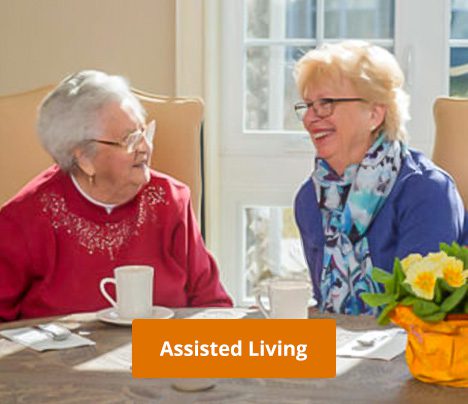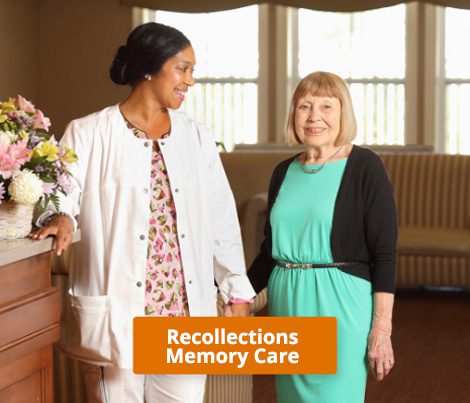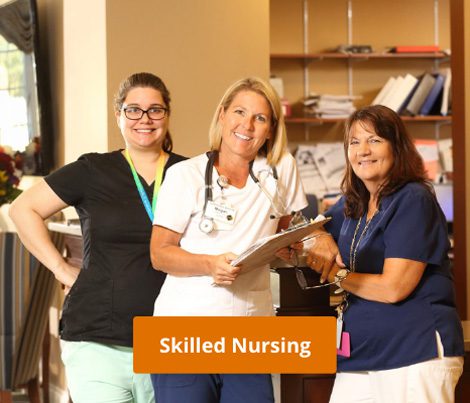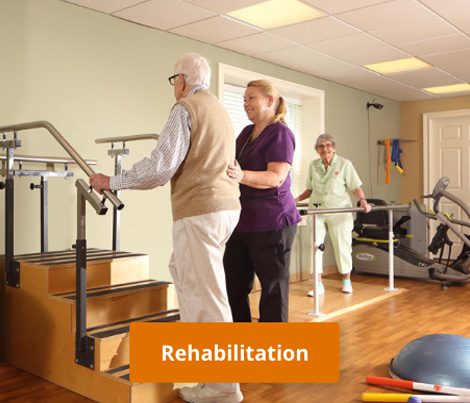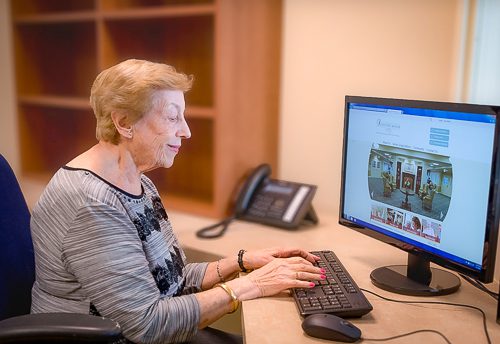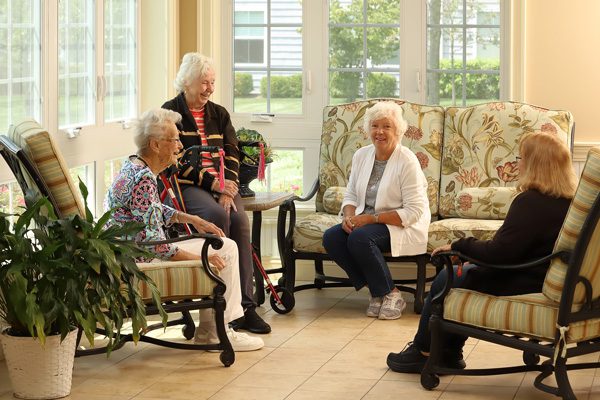When Couples Have Different Care Needs
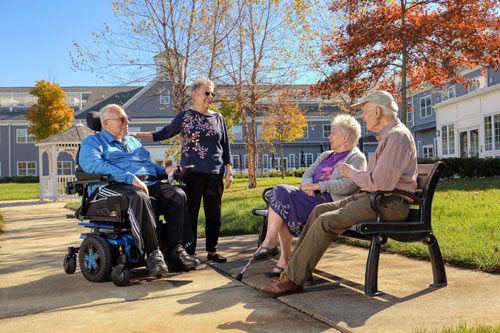
What happens when one parent needs more – or different – support?
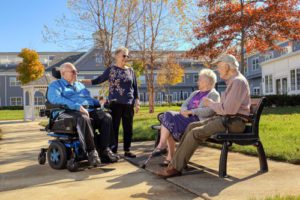 As parents age, families face challenging decisions about how best to support them. Some families find themselves with an extra wrinkle: one parent needs considerably more (or different) care.
As parents age, families face challenging decisions about how best to support them. Some families find themselves with an extra wrinkle: one parent needs considerably more (or different) care.
Differing needs bring up a lot of questions. How can you help your parents stay together as a couple when one needs more assistance than they can receive at home? What if one parent needs memory care, or is facing a lengthy rehabilitation?
Following are some real-life scenarios we see often at Sunnyside Manor, and the options that work best so that couples can stay together, get support, and enjoy an uplifting and independent lifestyle.
When One Parent Needs More (or Different) Care
Looking after senior parents with different care needs is common. But, what exactly does it mean to have different care needs? Families often come to us when:
- Their physically healthier parent is putting themselves at risk by helping their spouse with tasks like bathing, dressing, and moving around the home.
- One parent has Alzheimer’s Disease or memory loss. The other parent is managing their spouse’s minute-to-minute behavior and mood changes. How do you know when it’s time for memory care? Read more here.
- One parent will have a procedure that requires a lengthy rehabilitation process and their spouse has difficulty being at home alone.
- Both spouses have become isolated from friends and peers because of difficulty leaving the home or being at home alone.
While looking after each other’s needs is a normal and healthy part of a relationship, often one spouse continues in a caregiver role long after providing direct care is safe or reasonable. This can put their own physical and mental health at risk.
Support Options for Couples
Each family and each couple is unique, but the heart of the matter is the same: keep couples together while respecting their individual needs and safety.
Following are some of the options available to couples when their care needs differ, and exceed what can be provided safely at home.
Together in Assisted Living
When couples require different levels of support, moving to assisted living together can be the right choice. Many communities offer senior living apartments with plenty of space for two. The parent in need of more support is no longer dependent on their spouse. And, the parent who served as a caregiver can tend to their own health, knowing their spouse is safe. Together, they can enjoy the lively and enriching features of senior living together, like restaurant-style meals, entertainment, social events, and living among a community of peers.
- Benefits: Couples can stay together and have their individual needs met, so that they are free to enjoy time with each other and with peers rather than worrying about care.
- Drawbacks: Can be costly. Look to communities with couples’ rates and detailed levels of care so that you’re not paying for more than you need.
One Spouse in Assisted Living and One Spouse in Memory Care
A senior living community with a continuum of care is an ideal choice when one parent has Alzheimer’s Disease or significant memory impairment, and the other parent does not (but would benefit from support). Memory care provides a safe, nourishing, and supportive environment for those with Alzheimer’s Disease. When memory care is on the same campus as assisted living, the spouse in assisted living can spend as much time as they like visiting, while having their own space, their own support system, and time with peers.
- Benefits: The person with memory impairment is safe and supported. Their spouse can be with them as much as they like without providing direct care. Both can enjoy the benefits of living in a community with peers who understand and relate.
- Drawbacks: The change in routine can be challenging for the person with memory loss. However, most people in a memory care neighborhood adapt quickly when a new and supportive routine is established.
One Spouse in Assisted Living and One Spouse in Skilled Nursing and Rehabilitation
Recovery from a procedure or major health event can be a stressful time for a couple and their family, but it doesn’t have to be that way. In a senior living community with a continuum of care that includes skilled nursing and rehabilitation, rehabilitation services and extra help are just around the corner, and coordinated by familiar staff. That makes visitation and coordination of care easier for everyone.
- Benefits: Couples can have peace of mind knowing everything they need is in one place, should care needs change for the short term or long term. Couples can visit with each other as much as they like without depending on others for transportation.
- Drawbacks: Thinking about care needs changing for the long term can be difficult or feel overwhelming. Approach the topic with care and patience.
Both at Home with Home Care
For seniors who are determined to remain in the home, staying at home with home care is an option.
- Benefits: Couples can remain at home longer with support.
- Drawbacks: Can be costly and unpredictable. The caregiver spouse will still be in the caregiver role when a home care attendant is not present.
Other Considerations When One Parent Needs More Care
The move to a senior living community can be a challenging and exciting time – even more so when a couple moves together.
As one parent steps out of the caregiver role, they may have a mix of both positive and negative feelings. Emotions can run high when roles change. So, when you’re ready to start the conversation about senior living for couples, look to resources for approaching the topic with sensitivity. Talk with friends and family members who have had similar experiences. And, see our guide to starting the conversation about senior living as well as answers to your questions about senior living.
Learn More About Why Families Rely On Sunnyside Manor
When you have questions about senior living, we are here to help. Sunnyside Manor offers assisted living, memory care, and skilled nursing and rehabilitation. Learn more about Sunnyside Manor’s resources for caregivers. Whether you’re looking for short-term support or a longer-term plan, begin with our “Getting Started” guide. Please call us at 888-696-2052 to speak with a senior living expert.
Sunnyside Manor, located in Wall NJ, is the area’s premier family-owned senior living community. The community features three distinctive neighborhoods: Independence ‘Plus’ Assisted Living, Recollections Memory Care, and Long-Term Care & Short-Term Rehabilitation. Respite stays and palliative care are available in all neighborhoods.

